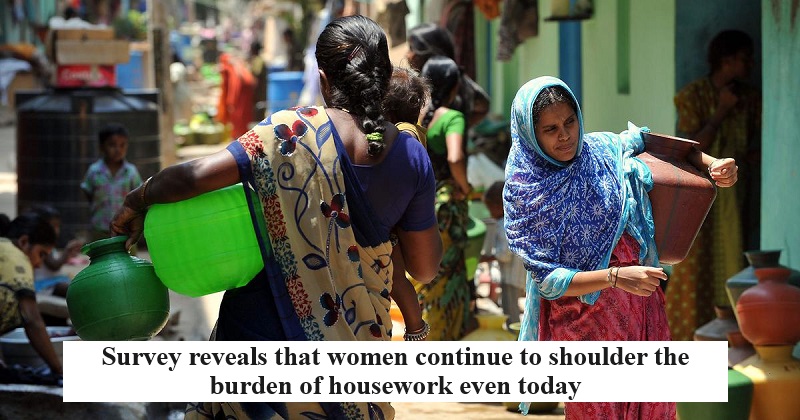
We are living in an era of equality where both men and women work and share household responsibilities. However, a recent British Social Attitudes (BSA) survey reveals that while attitudes towards gender roles, particularly in housework, have evolved, the reality still largely reflects traditional divisions.
The annual survey, as reported by BBC news, sought to gauge public opinions in Britain, and it found that more than three-quarters of the 6,638 respondents believe that domestic chores should be shared between partners.
Despite this widespread belief, two-thirds of the respondents acknowledged that women continue to bear the greater burden of tasks like laundry and ironing in the household. A substantial majority also recognized that women remain primarily responsible for cooking and cleaning.
This persistent inequality exists despite significant changes in societal perceptions of gender roles. In the mid-1980s, nearly half of the survey participants (48 percent) agreed with the statement that “a man’s job is to earn money and a woman’s job is to look after the home.” In 2023, this percentage plummeted to just nine percent. Nonetheless, 63 percent of female respondents admitted to performing more than their fair share of household duties.
Social scientists refer to this phenomenon as the “second shift,” wherein women not only participate in paid employment but also shoulder domestic and childcare responsibilities.
In 1983, approximately half of the survey respondents believed that both genders should share the responsibility of household income. In 2023, about 70 percent of both men and women endorsed this idea.
According to BBC, in 1983, when the BSA survey began, the female employment rate for women aged 16 to 64 stood at around 54 percent. This year, that figure has risen to 72 percent, with a notable increase in the participation of mothers.
Comparatively, in 1983, 78 percent of men aged 16 to 64 held paid jobs. Presently, this figure has only inched up by one percentage point, reaching 79 percent.
However, the study’s authors emphasize that there remains a significant gap between attitudes and actual practices, with women continuing to shoulder a disproportionate amount of domestic labor compared to men. They attribute this discrepancy to a combination of public policies, workplace norms, and the UK’s considerable distance from achieving a “complete gender-role revolution in the household.”

Post Your Comments